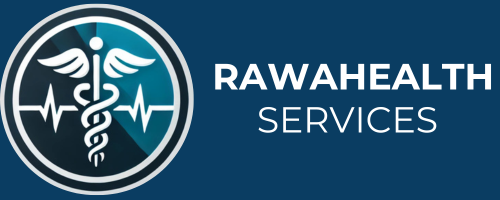Myocardial Infarction Treatment
A myocardial infarction, commonly known as a heart attack, can cause death or long-term heart damage. It occurs when a portion of the heart muscle (myocardium) dies due to a severe or total blockage in one of the coronary arteries, usually caused by a blood clot. The severity of a heart attack depends on how much of the heart muscle is damaged.
Causes of Heart Attacks
Heart attacks happen when blood flow to a part of the heart is obstructed, usually by a blood clot. This obstruction is often due to plaque buildup in the coronary arteries, consisting of fat, cholesterol, and other substances. Over time, the arteries thicken and harden. When plaque ruptures, it forms a blood clot that blocks blood flow, causing the heart muscle supplied by that artery to begin dying. The longer the artery remains blocked, the more damage occurs, leading to permanent heart injury.
Symptoms of a Myocardial Infarction
The primary symptom of a heart attack is unrelieved chest discomfort that may radiate to the arms, neck, shoulders, or jaw. Other symptoms include:
- Nausea
- Palpitations
- Dizziness
- Shortness of breath
- Sweating
Women may experience fatigue or nausea more frequently than men before a heart attack. Diabetics might not exhibit any symptoms at all.
Risk Factors for Heart Attacks
Risk factors for heart disease include:
- Smoking: Increases heart attack risk three to four times compared to non-smokers. Smoking can cause artery muscles to contract, reducing blood flow to the heart.
- High Blood Pressure: Damages artery walls and accelerates the hardening of arteries.
- High Cholesterol: Leads to fatty deposits along the artery lining, obstructing blood flow.
- High Triglycerides: Contributes to plaque formation. Moderation of alcohol, carbohydrates, and sugars is necessary.
- Diabetes: Doubles the risk of heart disease. Diabetes weakens arterial walls and promotes plaque formation.
- Excessive Alcohol and Caffeine: Can increase cholesterol by raising blood fat levels. Alcohol intake should be limited, and caffeine consumption should be restricted to two glasses per day.
- Obesity: Strains the heart as it has to work harder to pump blood. Weight loss can improve blood pressure and cholesterol levels.
- Lack of Balance: Maintaining a balance between rest, relaxation, and activity is essential. A well-rounded fitness regimen is advised.
How Are Angina and Heart Attacks Distinct?
Angina and heart attack pain differ. Angina is a chronic chest discomfort due to temporary blood flow reduction to the heart, often triggered by exertion like climbing stairs. Rest or prescribed medication typically relieves angina pain. However, individuals with angina are at a higher risk of having a heart attack. Persistent angina can lead to a heart attack.
Heart Failure
Heart failure occurs when the heart cannot pump enough blood to meet the body’s needs. It involves two phases of the heart’s pumping action:
- Diastole: The heart’s ability to relax and allow blood to flow back into the heart.
- Systole: The heart’s ability to actively pump blood out to the body.
When the heart begins to fail, both of these functions become abnormal, leading to inadequate blood circulation.
Conclusion
Recognizing the symptoms and risk factors of myocardial infarction is crucial for early intervention and treatment. Maintaining a healthy lifestyle, managing risk factors, and seeking prompt medical attention can significantly reduce the risk and severity of heart attacks.




